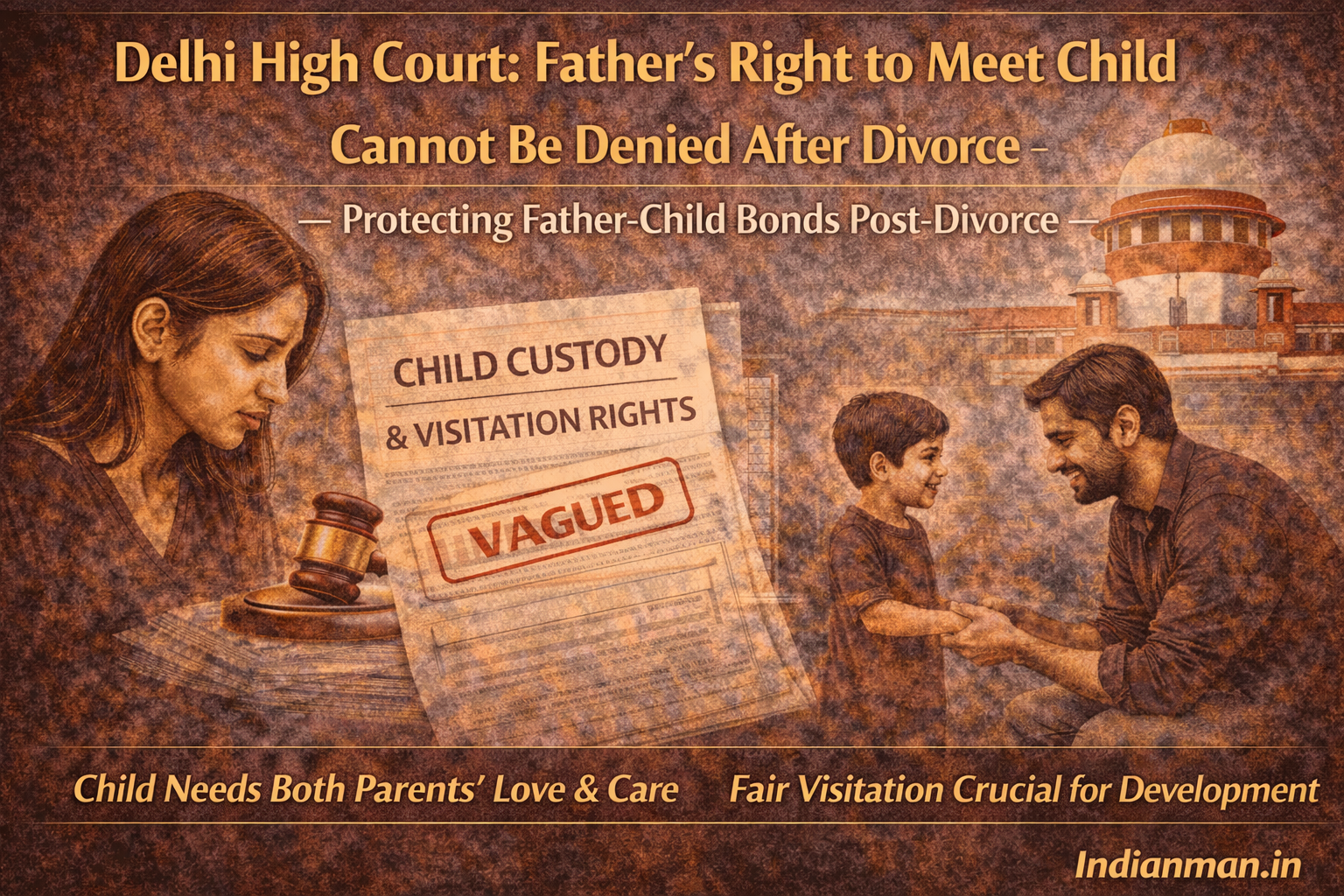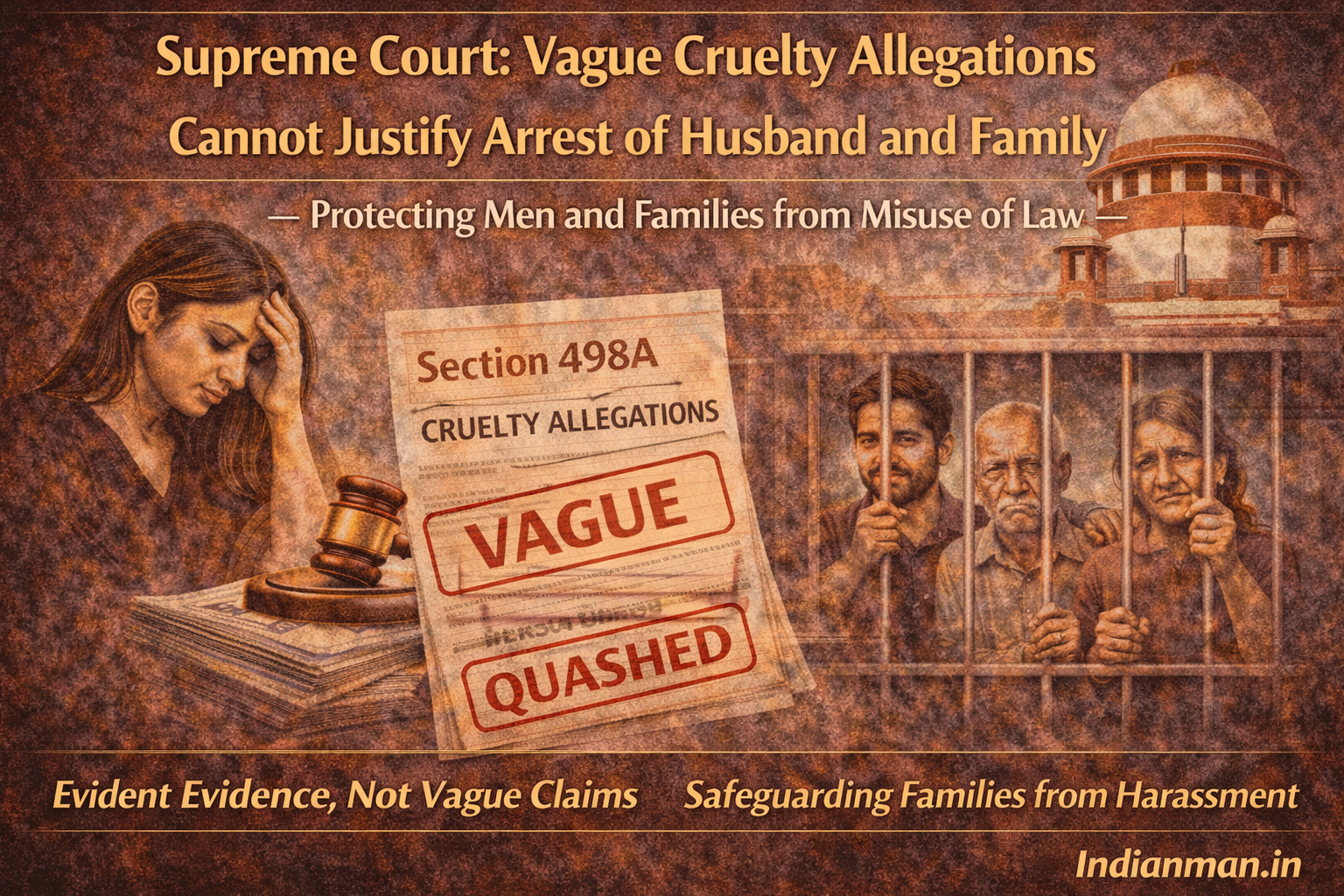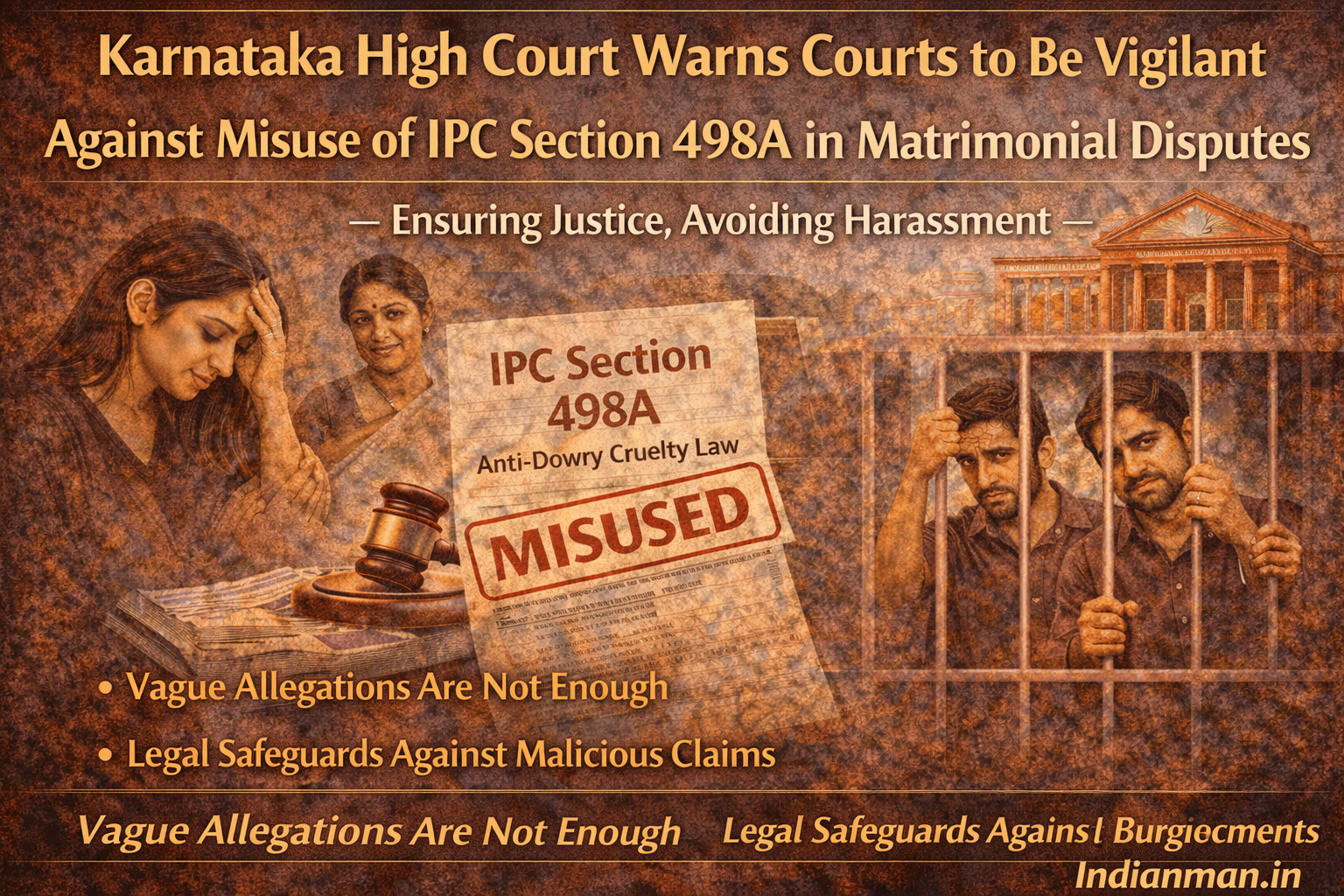On July 22, the Supreme Court of India enforced a two-month cooling-off period before any arrests are made under Section 498A of the Indian Penal Code (IPC). This law deals with cruelty or dowry-related harassment by a husband or his relatives. The court adopted this rule across India by reviving a set of guidelines previously issued by the Allahabad High Court in 2022.
A Supreme Court bench, led by Chief Justice D.Y. Chandrachud and Justice A.G. Masih, passed the ruling while hearing a matrimonial case between IPS officer Shivangi Bansal and her estranged husband Sahib Bansal.
In this case, the Court observed that the woman had filed several legal cases against her husband and in-laws, causing them severe emotional and physical distress. As part of the resolution, she was directed to issue a public apology in both English and Hindi newspapers.
The Court emphasized that the cooling-off period would give families time to think, reconcile, or reach settlements without the immediate pressure of police action.
The couple had married in 2015, had a daughter in 2016, but separated in 2018. Over 20 legal cases were filed by the wife, including domestic violence and dowry harassment cases. The key question before the court was how to prevent misuse of Section 498A and whether pending cases could be resolved through mutual understanding.
After reviewing the entire situation, the Supreme Court upheld the Allahabad High Court’s Criminal Revision No. 1126 of 2022, especially paragraphs 32 to 38, which introduced key safeguards to ensure fair investigations in such cases.
Key Directives Approved by the Court:
- No arrest or police action for two months after a complaint under Section 498A IPC is filed.
- During this time, the case must be reviewed by a Family Welfare Committee (FWC).
- Every district must have at least one such committee under the District Legal Services Authority (DLSA).
- FWCs will include retired judges, young mediators, legal professionals, or experienced social workers.
- FWC members cannot be summoned as witnesses.
- All 498A complaints must be sent to the FWC before any police action.
- The FWC will consult both parties and four elders (two from each side) and submit a report within two months.
If both parties agree, the case can be closed by the District Judge, with the Legal Services Authority providing support for settlement.
In the present matter, both parties informed the court of a mutual settlement. Key terms included:
- Custody of daughter Raina was given to the mother, with visitation rights to the father.
- All pending civil and criminal cases were withdrawn.
- The wife waived maintenance and alimony.
- A public apology by Shivangi Bansal will be published (without admitting guilt).
- A property in the wife’s mother’s name was transferred to the husband.
- Both parties were barred from filing further cases against each other.
Using its powers under Article 142 of the Constitution, the Supreme Court dissolved the marriage and confirmed all settlement terms will be enforced.
This landmark judgment ensures protection against misuse of anti-dowry laws while allowing genuine victims access to justice.
Be a part our social media community:
Facebook: https://www.facebook.com/IndianMan.in?mibextid=ZbWKwL
Instagram:
https://www.instagram.com/indianman.in?igsh=MWZ2N3N0ZmpwM3l3cw==




